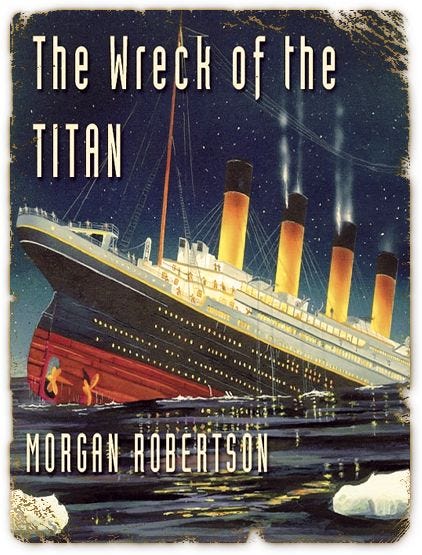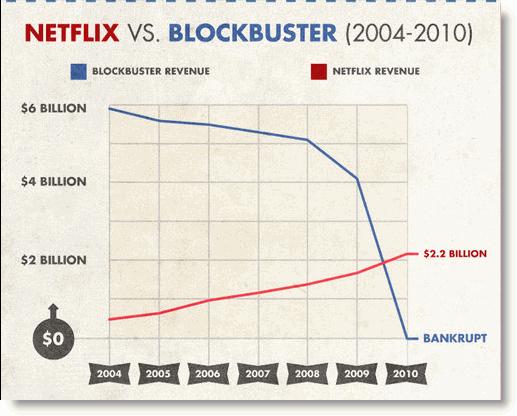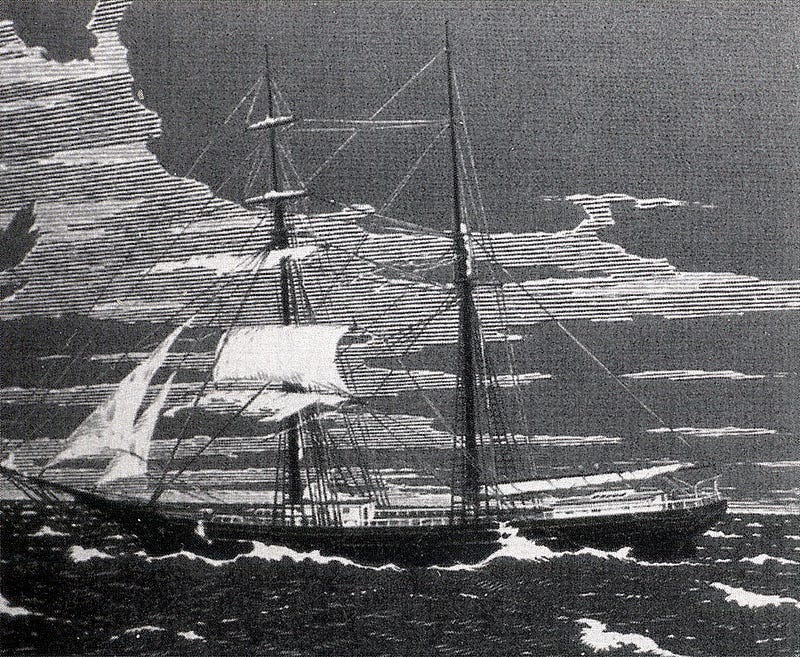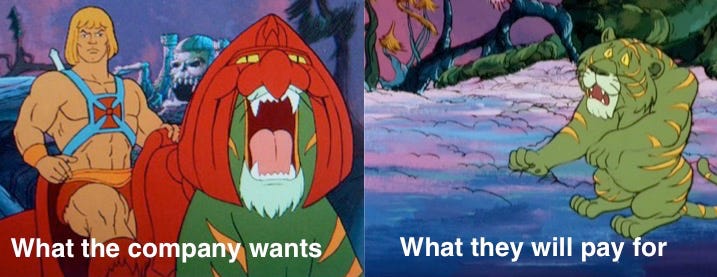
“Rough waters are truer tests of leadership. In calm water every ship has a good captain.” — Swedish proverb
‘Futility, or the Wreck of the Titan’ is a novella, which features an ocean liner described as “unsinkable” called Titan. The ship sinks in the North Atlantic after it hit an iceberg. There were not enough lifeboats for all passengers and the majority of the passengers died. This sounds like a very familiar story, but there is a twist.
This fictional book was written in 1898 and the RMS Titanic sank fourteen years later!
The author Morgan Robertson was credited with the gift of clairvoyance. He simply explained that his extensive knowledge of shipbuilding and maritime trends were what influenced his book.
Ships (and Icebergs)
So many companies today know they are headed for an iceberg, but so few of them do anything meaningful to avoid it. What is worse is when the captain of the ship is told by her crew-mates that there is an iceberg or several icebergs dead ahead and does nothing about it. These Captains are either too focused on the near term or immediate profits or do not involve their wider team as part of steering the ship.
“Neither Redbox or Netflix are even on the radar screen in terms of competition” — Jim Keyes, CEO, Blockbuster, 2008

Icebergs: Spectacular Swerves or Long Term Veering

Imagine the scene, there are several icebergs both seen and unseen on the ocean. Some are very visible, whilst some are mostly submerged. The wise captain knows that there are things she does not know and so creates a team or several teams who are charged with reconnaissance.
This team(s) are part of the mothership, but can behave to their own rules. They can explore for new opportunities, seeking out treasure on uncharted land, but also sweep the waters for icebergs. Their mission is to spot icebergs that mothership would not see from the captains bridge. The captains bridge is trained to spot certain things, but not when the waters are new and uncharted.
One successful CEO I know gave me the following nugget when we talked about the CEO as the captain of a ship. He said the more impressive CEO is the one who pre-empts the iceberg coming well in advance of impact by employing the tactic above.
Instead of a dramatic last-minute swerve out of the way of an iceberg, this CEO keeps the ship on a long-term steady course. This CEO avoids the iceberg altogether (this reminds me of the aim of martial arts, you learn to master them in order to never use them). As a result the ship does not have any dramatic turns, but rather the variations are gradual and the course is set well in advance.
In order for this to happen there must be an absence of ego from this leader/captain. A more egotistical CEO will ignore warning signs to achieve short term gains and appease the board or share holders and reach personal financial targets.
Such CEOs are not in their role to build long term sustainable companies, but rather to get what they can out of the role and the company. These CEOs are flamboyant and always have nice golden parachute packages negotiated with their contract. With such a CEO at the helm the ship will never invest ahead of revenue in innovation, business imagination nor digital initiatives. This ship will eventually become shipwrecked or simply become a Ghost Ship.
Rudderless Ghost Ships

A ghost ship, also known as a phantom ship, is one with no living crew aboard. It is a term also used for ships that have been decommissioned. It also refers to drifting boats drifting away with no crew.
This reminds me of the many half-hearted tick-the-box digital initiatives, which are widespread in companies today. The amount of times I have been asked to recommend a digital resource who has amazing skills — a mix of technologist, leader, salesperson, marketer with networking skills, high emotional intelligence and empathy — and the amount of times I have recommended someone (there a very few) and the requester says no they are too expensive.

Let’s take, for example, a report that came out on Tuesday by IIC Partners Executive Search Worldwide. 80% of senior executives said investment in digital transformation is extremely important to future success. However, only 24% said they plan to hire a Chief Digital Officer within the next two years!
This typifies the approach to digital transformation.
We have so many ghost ship digital projects, which come in one of two forms.
The first is that they are only for show to the shareholders or board and lack real substance. This type of (digital/innovation) ghost ship has either no crew or a crew who have been put into this role to move them from somewhere they were no longer needed.
The second is a (digital/innovation) ghost ship that is simply rudderless. This one lacks true leadership. This one simply ghosts along the ocean with no real purpose, because it does not have the right captain nor crew.
To succeed, there needs to be investment ahead of revenue, there needs to true innovation initiatives, there needs to be the right people in the boat and the boat needs to know where it is going. For the last point this is where the ship needs a clear north star. The north star should be visible to the crew of the ship at all times.
North Stars
When Walt Disney was developing Disney Land in the early fifties. Walt would frequently arrive home late in the evenings and would often enter his house through the kitchen to grab a “weenie/wienie” (hot dog) from the fridge as he made his way through the kitchen and would share the hot dog with his dog Lady.
Lady would then follow Walt wherever he went when he was holding the hot dog because she knew he was going to share it with her.
As a result Walt coined the term ‘wienie’ to describe an object, or a place that would lead or direct guests around Disney Land.
The concept of a Wienie is an important one to any leader trying to lead a team in an aligned manner in times of change or disruption. If you have ever been to Disney Land the Castle in the centre of the park represents a wienie.
While a North Star guides a ship and its crew is very explicit, a wienie has a more subtle and subconscious effect of drawing you towards it as a beacon, as a destination.
Companies need a clear explicit north star so that the crew know why they go to the ship every day. This north star needs to be both explicit and implicit. For the implicit one there needs to be a set of themes that the crew can internalise and interpret their own meaning from.
Without such meaning, without investing in the right crew and without investing in a reconnaissance team companies will eventually fail. You can make a company leaner by stripping costs, improving processes, supply chain and distribution, but without meaning the company will eventually become a Ghost Ship or share the fate of The Titan.
We talk about leadership in today’s Innovation Show available on iTunes, Soundcloud and TuneIn (and transmitted on RTÉ Radio 1 Extra this Saturday).
We have an inspirational chat with Aer Arann founder Padraig O’Ceidigh, we talk Leadership, Parenting, Grit and Failure.
Alex Theuma tells us about founding his conference Saastock and how blogging and podcasting changed his life.
Dr. Alison Campbell, Director tells us about Knowledge Transfer Ireland and how it can help founders and startups
Steven Lock, CEO of Monford Ag, tells us about his incredible story of Grassometer